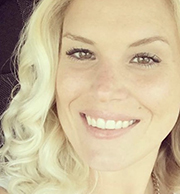
Making an Impact: Showing up and Serving All Students
By Ashley Miranda | March 2024
 The past few years have been filled with debates and political tensions about public education and the influence schools and educators have on students, dealing with topics of race, LGBTQ+ and safety in schools. In some instances, school counselors encounter a lack of support from parents, staff or administrators, making our roles even more challenging. I know you will all agree that our work can be overwhelming and exhausting, and I am sure I am not alone when I say that some days I really feel the weight of it all – the feeling of stress, uncertainty, sadness, anxiety.
The past few years have been filled with debates and political tensions about public education and the influence schools and educators have on students, dealing with topics of race, LGBTQ+ and safety in schools. In some instances, school counselors encounter a lack of support from parents, staff or administrators, making our roles even more challenging. I know you will all agree that our work can be overwhelming and exhausting, and I am sure I am not alone when I say that some days I really feel the weight of it all – the feeling of stress, uncertainty, sadness, anxiety.Professionally and personally, this has been the most challenging year for me, facing criticism and backlash for doing my job. Our job.
This article started as one thing and morphed into another as this situation has evolved but nevertheless, the message is the same and it’s important: It is our role to serve our students; all of our students. Full stop. Even when it is hard or when you may face criticism. Never stop showing up.
We are in a unique position to provide a safe and welcoming space for students, in every situation, to express themselves and feel seen and heard and safe. Regardless of your personal beliefs, religion or political affiliation, as a school counselor you need to be there for all students. It is our responsibility. As the ASCA Ethical Standards preamble tells us:
all students have the right to: be respected and treated with dignity, as well as have the right to equitable access to school counselors who support students from all backgrounds and circumstances and who advocate for and affirm all students.
At the same time, we also have responsibilities to ourselves. The ASCA Ethical Standards state:- School counselors should “develop knowledge and understanding of historic and systemic oppression, social justice and cultural models (e.g., multicultural counseling, anti-racism, culturally sustaining practices) to further develop skills for systemic change and equitable outcomes for all students.”
- School counselors will not refuse services to students based solely on personally held beliefs/values rooted in one’s religion, culture or ethnicity. School counselors work toward a school climate that embraces diverse identities and promotes equitable outcomes in academic, career and social/ emotional development for all students.
What else can you do to ensure all students feel seen and supported?
In a 2015 study, author Emde reported that having “an open-door policy, school counselors being advocates, and school counselors modeling a relaxed environment all contributed to students feeling valued.” Numerous studies support that school counselors are pivotal in providing a sense of connectedness for students and a safe environment where students feel important. Further, the relationship between students and school counselors has the potential to promote academic success. (See Epstein & Van Voorhis, 2011; Moore-Thomas & Day-Vines, 2010; Steen & Noguera, 2010).
Our job can be a thankless one and oddly, after this situation of mine became public, I have felt more support, encouragement and thanks than I ever have in my entire career. Former students, former parents, colleagues, current students and parents – all emailing and messaging kind words and supportive messages. I share this to say that even though you may not hear it often, what you do matters. It is appreciated by students (former and current), it is noticed by parents and it is respected by colleagues.
In closing, I say thank you. Thank you for all you do, and thank you for showing up for all of your students and being in their corner. Thank you for supporting them, especially in those times when it is hard and when they need it the most.
Ashley Miranda is a school counselor at Delaware Valley Regional High School and an at-large member of the NJSCA Executive Board.